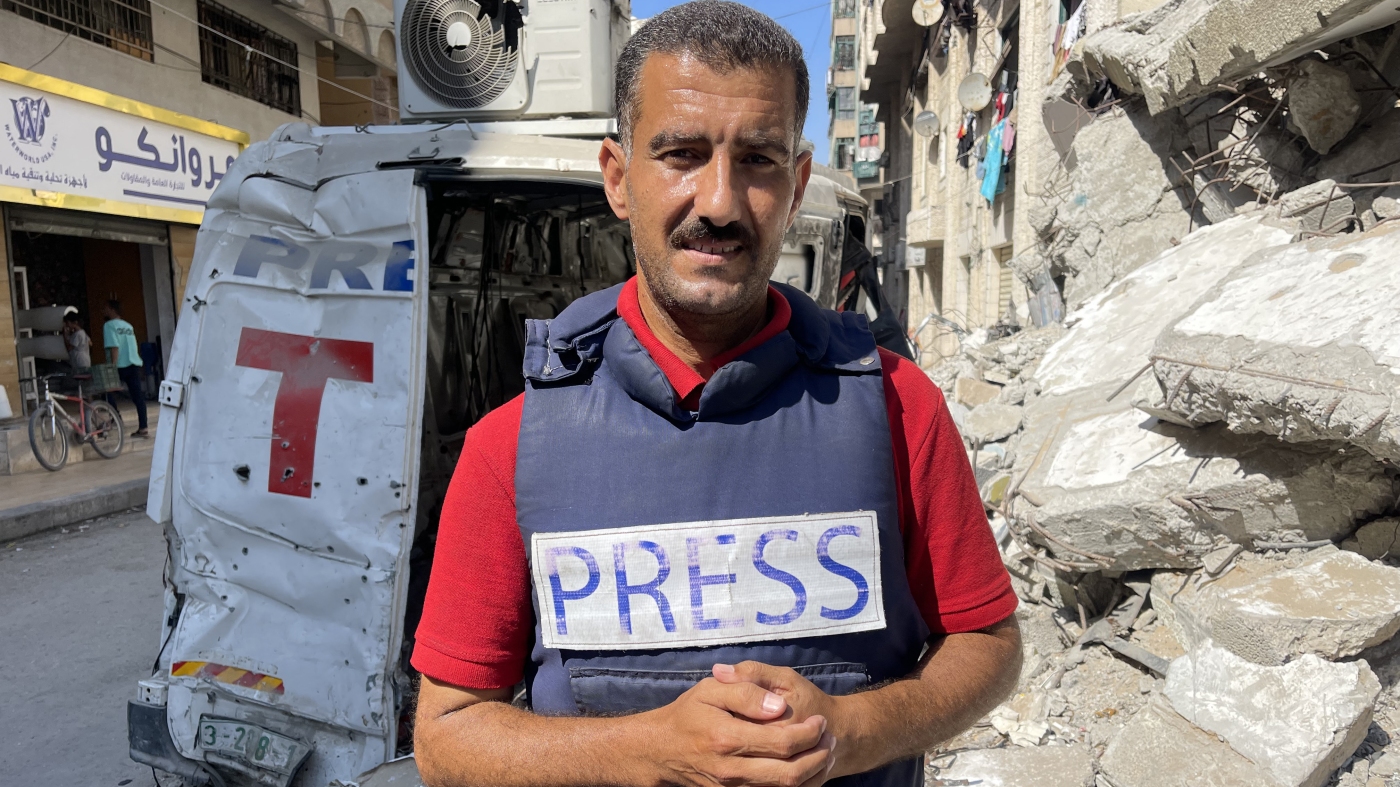A Chronicle of Crisis: AFP, Journalists, and the Humanitarian Catastrophe in Gaza
The Unfolding Tragedy
The Gaza Strip is a region in perpetual crisis, where the echoes of conflict are drowned out only by the cries of a population teetering on the brink of starvation. Amidst this chaos, journalists, particularly those working for Agence France-Presse (AFP), find themselves in an unenviable position. They are the eyes and ears of the world, tasked with documenting the horrors unfolding in Gaza, yet they are also victims of the very crisis they report on. This report delves into the challenges faced by AFP journalists in Gaza, the agency’s efforts to evacuate them, and the broader implications of this situation for press freedom and humanitarian concerns.
The Dire Humanitarian Situation in Gaza
The humanitarian crisis in Gaza is a stark reminder of the fragility of life in a conflict zone. Reports from the ground paint a grim picture, with starvation becoming a daily reality for many. The United Nations human rights office has reported over 1,000 Palestinians killed since May while seeking food, a stark indicator of the desperation driving people to risk their lives for basic sustenance. Child malnutrition is on the rise, particularly since March, coinciding with tightened restrictions on aid. The blockade of aid into northern Gaza exacerbates the crisis, with the UN Relief and Works Agency (UNRWA) reporting ongoing obstacles. The situation has become so dire that at least 15 people, including four children, have reportedly died from hunger.
The Plight of AFP Journalists
Amidst this humanitarian catastrophe, AFP journalists in Gaza are facing immense challenges. These journalists are struggling with safety concerns and the need to secure basic necessities for their families. The AFP journalists’ union has voiced their concerns, emphasizing the starvation faced by their Gaza reporters. The news agency has called on the Israeli government to allow its freelance journalists to leave the Gaza Strip due to the worsening hunger. AFP’s global news director, Phil Chetwynd, highlights the difficult position these journalists face, torn between their professional obligations and their families’ welfare. The French government has acknowledged the challenge in evacuating AFP reporters from the Gaza Strip, noting the heavy toll on journalists covering the conflict.
Efforts to Evacuate AFP Journalists
Given the deteriorating conditions, AFP has been actively seeking to evacuate its journalists from Gaza. The French Foreign Affairs Ministry has stated it is working to help evacuate French citizens, their dependents, and employees of French organizations like AFP. However, these efforts have been complicated by the ongoing conflict and restrictions on movement in and out of Gaza. The Israeli military has informed international news organizations, including Reuters and AFP, that it cannot guarantee the safety of their journalists operating in the Gaza Strip, further complicating the situation.
Attacks on Media Infrastructure
Adding to the dangers faced by journalists is the reported targeting of media infrastructure. AFP’s Gaza City bureau has been significantly damaged by a strike on the building. A four-month investigation revealed the AFP office came under direct tank fire. These incidents raise concerns about the safety of journalists and the deliberate targeting of media outlets.
Implications for Press Freedom
The situation in Gaza raises critical questions about press freedom and the ability of journalists to report on conflicts without fear for their safety. The inability to guarantee the safety of journalists, coupled with reports of attacks on media infrastructure, hinders the flow of information from the region. This has broader implications for transparency, accountability, and the public’s right to know about the events unfolding in Gaza. The risks faced by AFP journalists and others highlight the urgent need for measures to protect journalists in conflict zones and ensure their ability to report freely and safely.
Israel’s Perspective
The Israeli government denies using starvation as a weapon of war and argues that its actions do not violate the Genocide Convention. Despite these denials, the restrictions on aid and the dire humanitarian situation raise concerns about the impact of Israeli policies on the civilian population in Gaza. The reopening of two bakeries in Gaza City offers a glimmer of hope, but the question remains how long they can sustain operations given the ongoing challenges.
The Role of International Organizations
International organizations, such as the UN, play a crucial role in addressing the humanitarian crisis in Gaza and advocating for the protection of civilians, including journalists. The UN’s reporting on the number of Palestinians killed while seeking food highlights the severity of the crisis. UNRWA’s efforts to deliver aid and provide essential services are hampered by ongoing restrictions. These organizations continue to call for increased access and the protection of humanitarian workers and journalists.
Conclusion: A Call for Action
The situation facing AFP journalists in Gaza reflects a broader crisis of humanitarian proportions and press freedom. Their struggle to report on the conflict while facing starvation and safety risks underscores the urgent need for action. The international community must prioritize the protection of journalists, ensure the delivery of humanitarian aid, and work towards a resolution that addresses the root causes of the conflict. Failing to do so will only perpetuate the cycle of violence and suffering in Gaza. The world needs to recognize the intertwined fates of the press and the people in Gaza.

